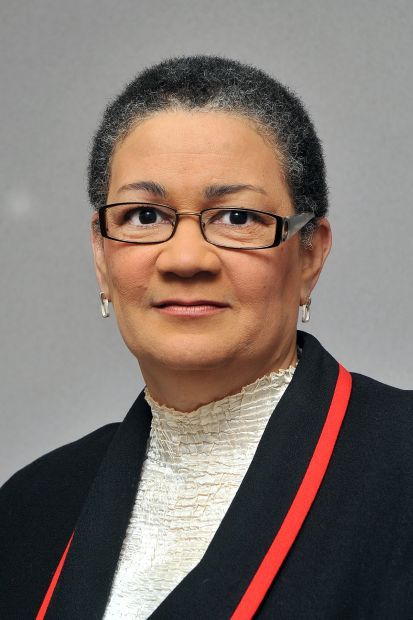This post originally appeared in the St Louis American
There are few who did not rise to the occasion, who did not donate, plan or pray. There are few who did not view the senseless and brutal shooting of Michael Brown as a reflection of the lack of value placed on the lives of black males. There are few who did not vow to carry on, to demand justice for Michael Brown and all who died before him.
But there are also few who realize the connection between brazen police shootings of young, black males and entire system of so-called criminal justice. They don’t see a carefully designed plan to demoralize African Americans and bolster incarcerations. They don’t see that the failure to vote out a prosecutor whose disregard for the African-American community has empowered law enforcement to shoot to kill without fear of prosecution.
For every white officer who goes unindicted for gunning down black boys, a message is sent to others. To the police, no matter how disproportionate the response or incompetent the confrontation, there’s little to fear as to consequence. To black boys, it’s a message of diminished value. To the world, it’s one that they are above the law.
The U.S. system of mass incarceration is big business. It generates over $72 billion a year in profits for corporations and those who buy their stock. Mass incarceration breeds on poverty, unemployment, disrespect and hate. It breeds on generations of black males once again learning their place; castrated by Tasers, billy sticks and guns.
It breeds on their submission to the constant taunting of racist and overbearing police – routine traffic stops turned into searches, routine searches turned into arrests. It’s a circuitous practice that criminalizes black males for behavior routinely ignored when engaged in by whites. It’s a practice that has prison cells disproportionately filled with minorities.
With a staggering increase in the rates of incarceration, the correlation between prisons and a police culture gone rogue should be clear. Those who profit from prisons, whether private or not, have bought their way into the pockets of politicians, courts and police. They have insured that their investments bring a return and that prison beds stay filled.
All prisons generate profits, but since the inception of private prisons 30 years ago their profits have soared. Essentially engaged in human trafficking on the stock exchange, their populations have increased by 800 percent.
There are few who ever thought St. Louis would be the epicenter of social change. That the killing of an unarmed teen in Canfield Green would galvanize a region and generate a resolve previously unknown. Outside of St. Louis, there are few who know the protests, violence and meetings are an indication that the days of unchecked police brutality has come to an end.
There’s a price to pay for our sons and that price will be high. We’re tired. We’ve had enough. From this point forward, the words “To Serve and Protect” will include our sons as well.

Christi Griffin is the founder of The Ethics Project, a non-profit organization addressing the impact of crime, injustice and incarcerations. She is the author of “Incarcerations in Black and White: The Subjugation of Black America.” See www.TheEthicsProject.org or email TheEthicsProject@gmail.com.
For every white officer who goes unindicted for gunning down black boys, a message is sent to others. To the police, no matter how disproportionate the response or incompetent the confrontation, there’s little to fear as to consequence. To black boys, it’s a message of diminished value. To the world, it’s one that they are above the law.
The U.S. system of mass incarceration is big business. It generates over $72 billion a year in profits for corporations and those who buy their stock. Mass incarceration breeds on poverty, unemployment, disrespect and hate. It breeds on generations of black males once again learning their place; castrated by Tasers, billy sticks and guns.
It breeds on their submission to the constant taunting of racist and overbearing police – routine traffic stops turned into searches, routine searches turned into arrests. It’s a circuitous practice that criminalizes black males for behavior routinely ignored when engaged in by whites. It’s a practice that has prison cells disproportionately filled with minorities.
With a staggering increase in the rates of incarceration, the correlation between prisons and a police culture gone rogue should be clear. Those who profit from prisons, whether private or not, have bought their way into the pockets of politicians, courts and police. They have insured that their investments bring a return and that prison beds stay filled.
All prisons generate profits, but since the inception of private prisons 30 years ago their profits have soared. Essentially engaged in human trafficking on the stock exchange, their populations have increased by 800 percent.
There are few who ever thought St. Louis would be the epicenter of social change. That the killing of an unarmed teen in Canfield Green would galvanize a region and generate a resolve previously unknown. Outside of St. Louis, there are few who know the protests, violence and meetings are an indication that the days of unchecked police brutality has come to an end.
There’s a price to pay for our sons and that price will be high. We’re tired. We’ve had enough. From this point forward, the words “To Serve and Protect” will include our sons as well.

Christi Griffin is the founder of The Ethics Project, a non-profit organization addressing the impact of crime, injustice and incarcerations. She is the author of “Incarcerations in Black and White: The Subjugation of Black America.” See www.TheEthicsProject.org or email TheEthicsProject@gmail.com.
